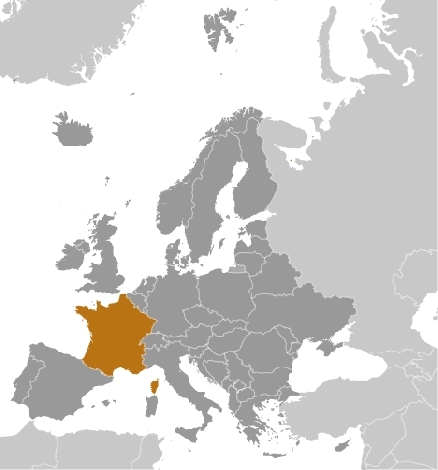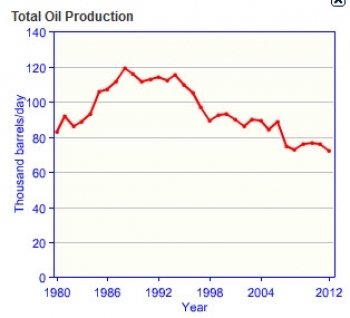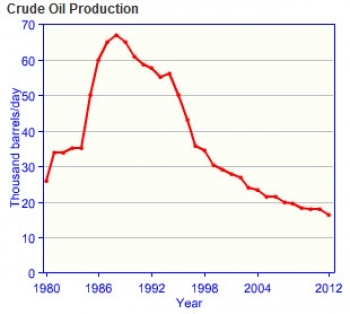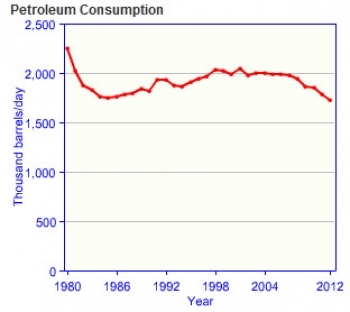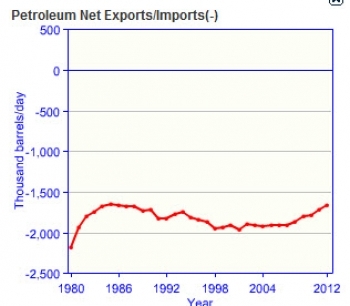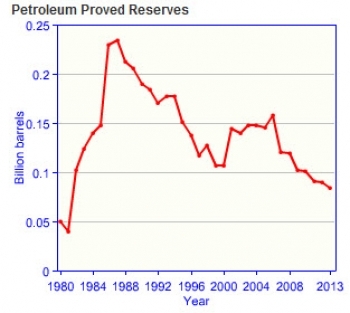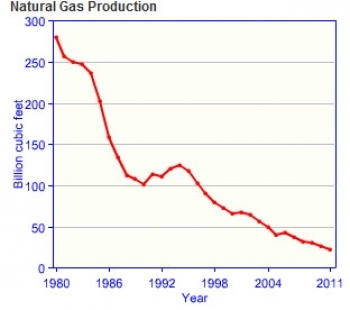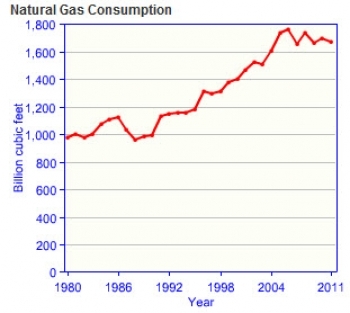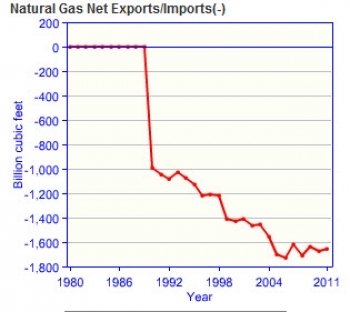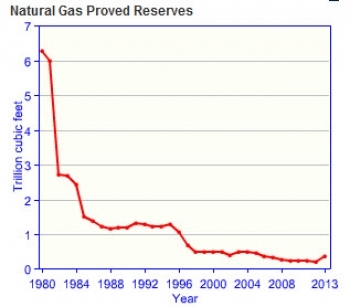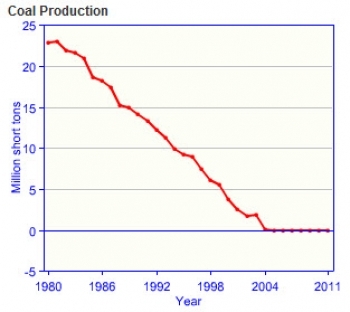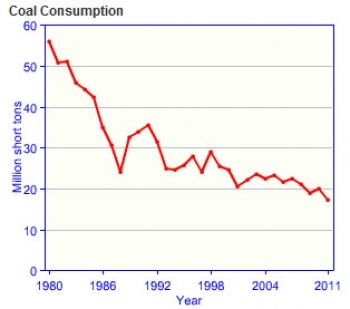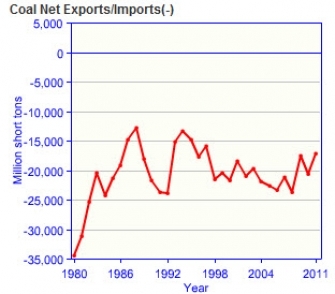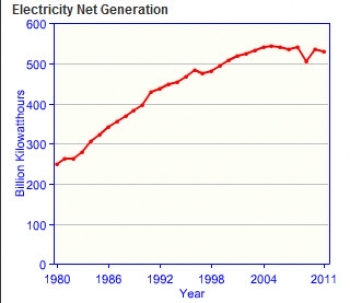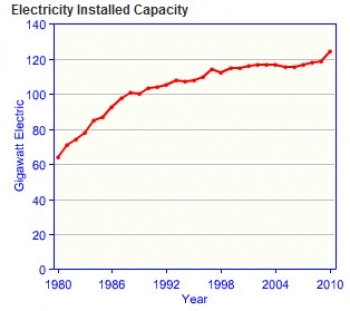Energy profile of France
Energy profiles of countries and regions 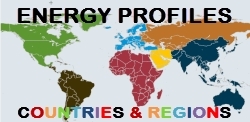 France has the second-largest economy in Europe in terms of nominal gross domestic product (GDP), after Germany, and the fifth largest in the world. With little domestic energy production, the country relies on a diversified set of imports to meet most of its oil and gas consumption. France was the 12th largest oil consumer and 7th largest net importer of petroleum liquids in 2011.
France has the second-largest economy in Europe in terms of nominal gross domestic product (GDP), after Germany, and the fifth largest in the world. With little domestic energy production, the country relies on a diversified set of imports to meet most of its oil and gas consumption. France was the 12th largest oil consumer and 7th largest net importer of petroleum liquids in 2011.
Oil
Oil represents approximately one-third of France's total primary energy consumption and that share has been falling since 2001. France imports crude oil through three major sea ports (Marseille, Le Havre, and Saint-Nazaire) and the South European Pipeline System (SPSE) to Germany. Four main product pipelines, especially the LHP line supplying Paris, and seven sea ports (including those that take in crude oil) supply France with refined petroleum products.
According to the Oil & Gas Journal, France has a crude refining capacity of around 1.8 million barrels per day, the fourth highest in Europe after Russia, Germany, and Italy. The main French oil company is Total, one of the largest publicly owned oil and gas companies in the world. Total operates five of the country's 12 refineries and manages roughly half of the country's refining capacity.
Natural Gas
France has very little domestic natural gas production, and the French government banned the use of hydraulic fracturing to explore unconventional resources such as shale gas. French authorities project natural gas demand to remain stable or fall slightly through 2020. France imports natural gas through a variety of cross-border pipelines from theNetherlands, Norway, and Russia. France also imports liquefied natural gas at a number of ports from countries around the world, notably Algeria and Qatar. The power sector and industry sector have growing gas demand, while residential sector demand is starting to decrease, mostly because of efficiency gains, according to the International Energy Agency.
Coal
Electricity
The country's main source of electricity generation is nuclear power, and France is second to the United States in terms of operable nuclear capacity. France has 58 operable reactors with a total capacity of 63.1 gigawatts (GW), which connected to the grid between 1977 and 1999, and one reactor under construction projected to connect to the grid in December 2016. Nuclear generation in 2011 was 420 terawatthours, or around 75 percent of the country's total generation. France is the world's largest net exporter of electricity and an exporter of reactor technology.
France has a closed fuel cycle, which reprocesses used nuclear fuel to reduce the volume of waste requiring disposal and to create new mixed oxide fuel for its nuclear power plants. The 2006 Nuclear Materials and Waste Management Program Act declared deep geological disposal as the national approach to waste disposal. The National Radioactive Waste Management Agency (ANDRA) expects to start licensing its deep geologic repository at Bure in 2015 and begin disposal operations in 2025.
Renewable Energy
France also produces a significant amount of energy from renewable resources. It is the second-largest producer of biofuels in Europe, after Germany, and it produces mostly biodiesel for the transportation sector.
Further Reading
- Areva
- Association Française du Gaz (AFG)
- Charbonnages de France
- Compagnie Nationale du Rhône
- EIA: Country Information on France
- Electricite de France (EdF)
- Eurostat
- Gaz de France (GdF)
- TotalFinaElf
- Vermilion
| Disclaimer: This article is taken wholly from, or contains information that was originally published by, the Energy Information Administration. Topic editors and authors for the Encyclopedia of Earth may have edited its content or added new information. The use of information from the Energy Information Administration should not be construed as support for or endorsement by that organization for any new information added by EoE personnel, or for any editing of the original content. |
